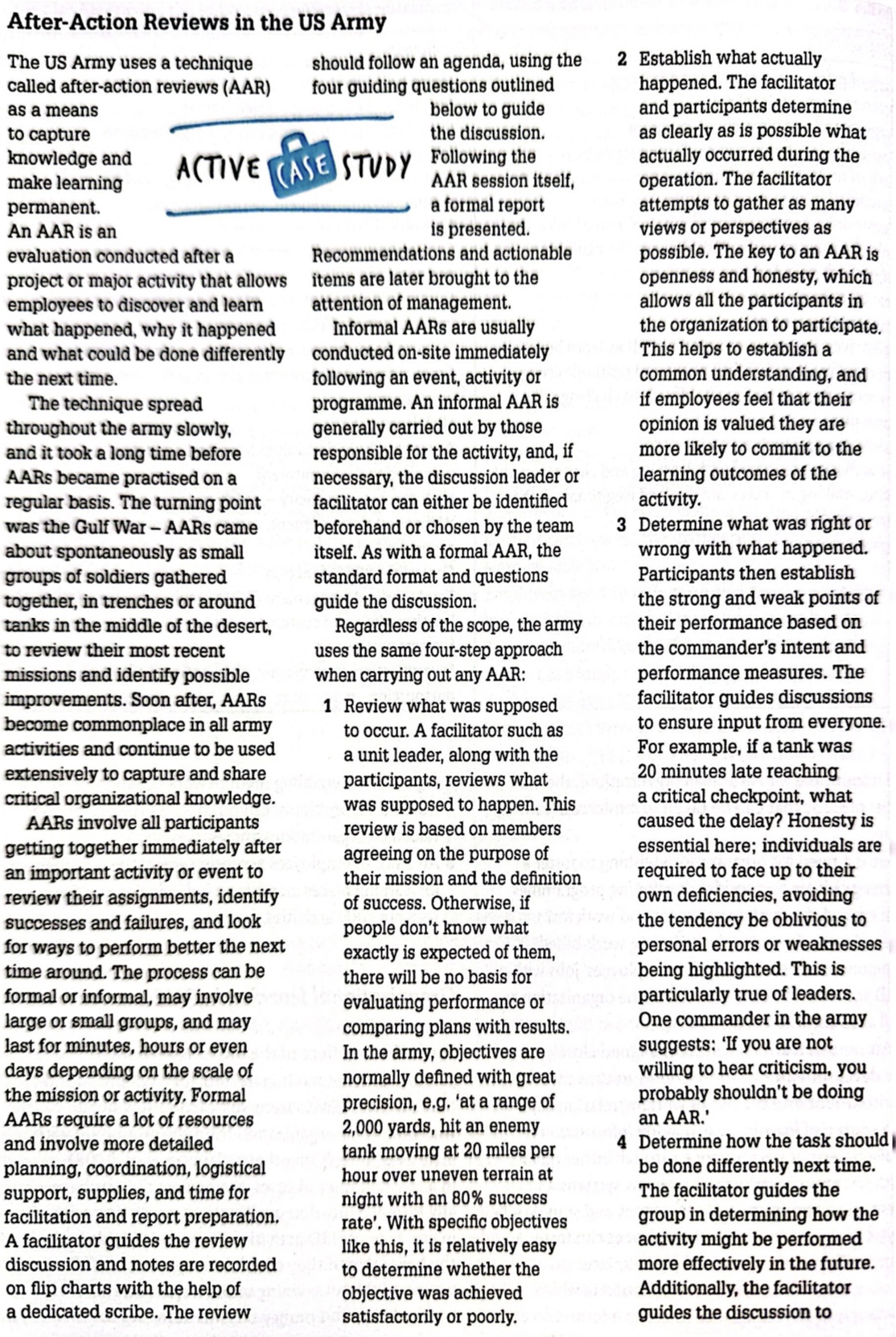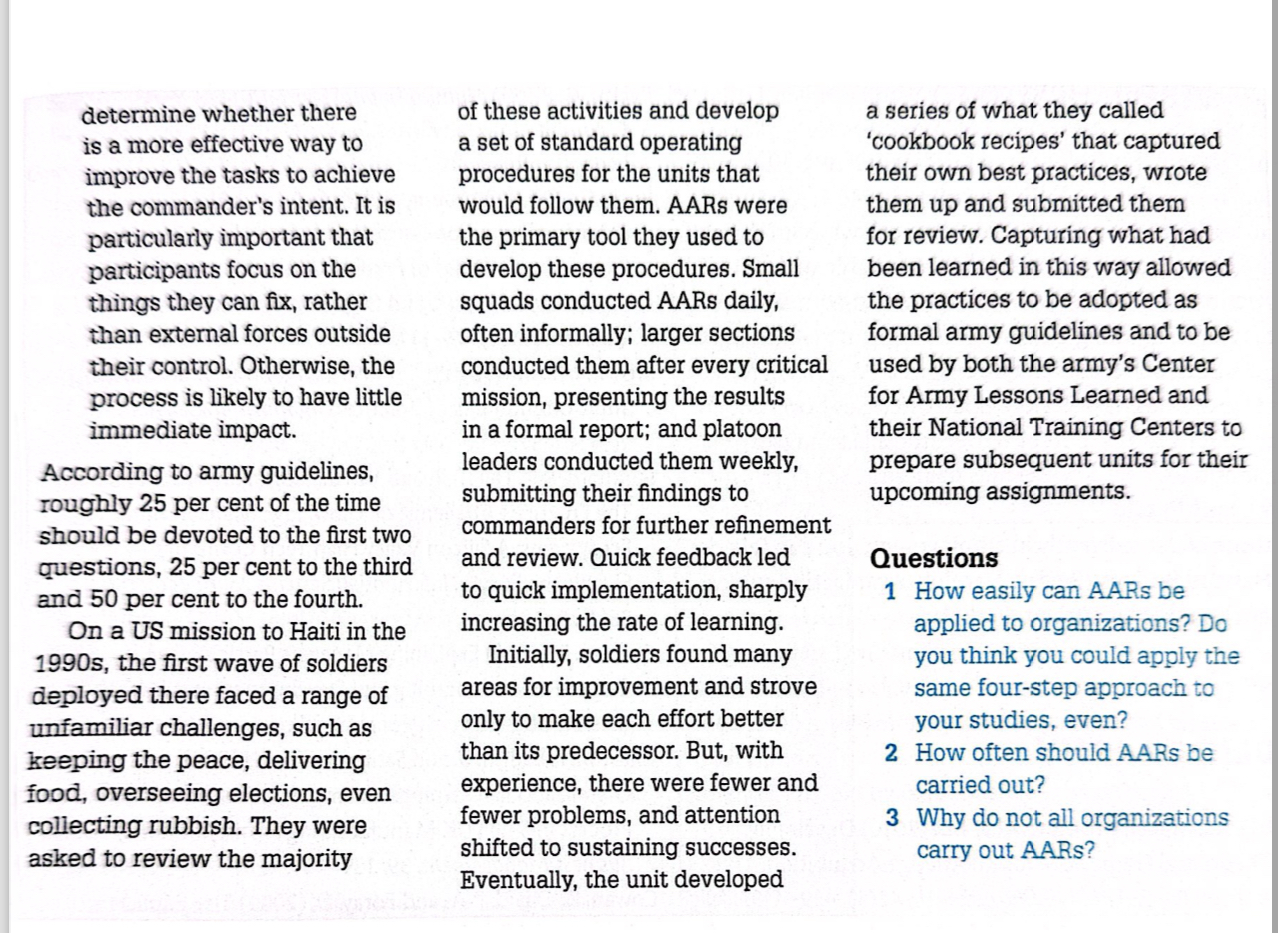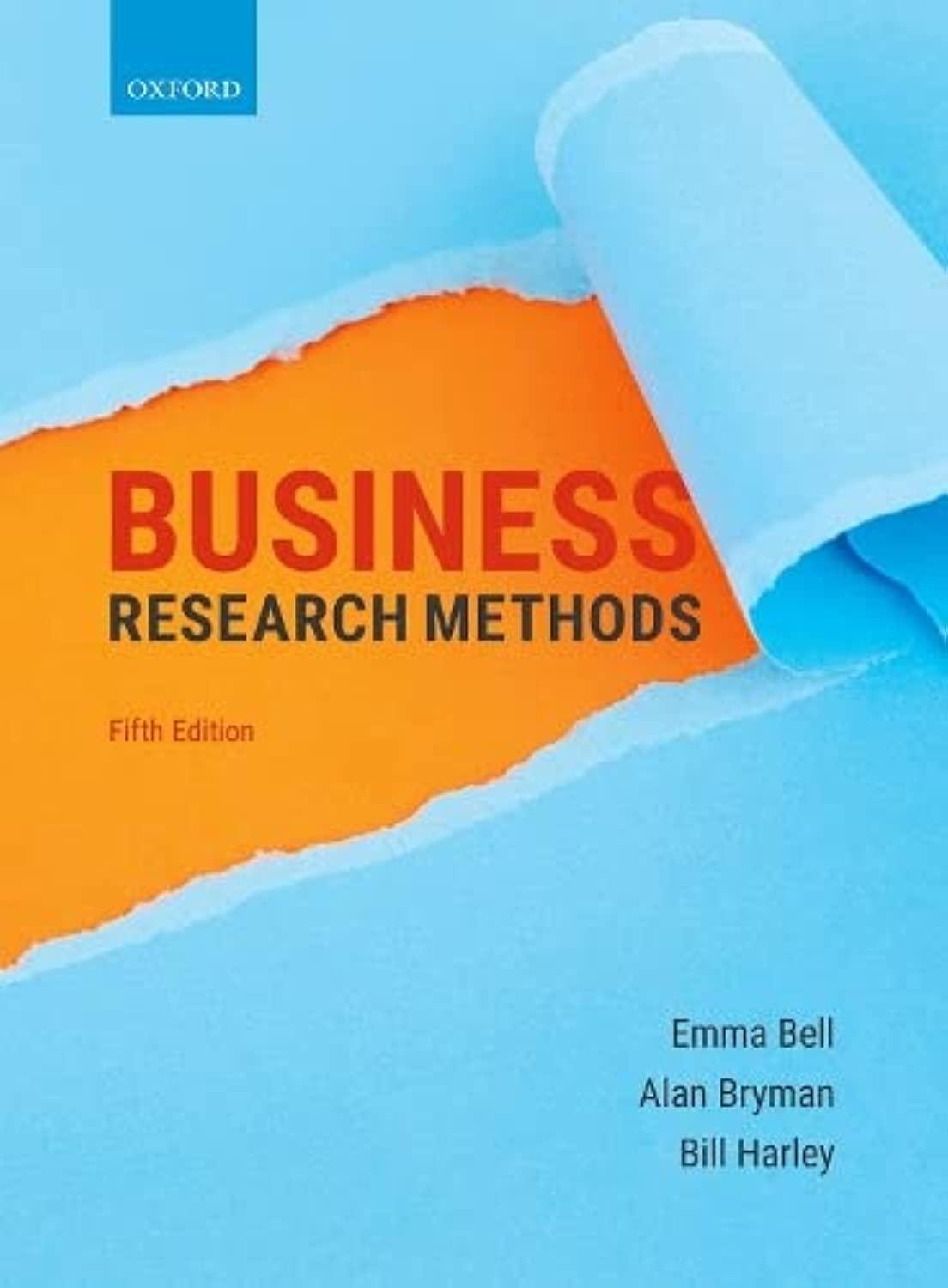Answered step by step
Verified Expert Solution
Question
1 Approved Answer
After-Action Reviews in the US Army determine whether there is a more effective way to improve the tasks to achieve the commander's intent. It is

 After-Action Reviews in the US Army determine whether there is a more effective way to improve the tasks to achieve the commander's intent. It is particularly important that participants focus on the things they can fix, rather than external forces outside their control. Otherwise, the process is likely to have little immediate impact. According to army guidelines, roughly 25 per cent of the time should be devoted to the first two questions, 25 per cent to the third and 50 per cent to the fourth. On a US mission to Haiti in the 1990 s, the first wave of soldiers deployed there faced a range of unfamiliar challenges, such as keeping the peace, delivering food, overseeing elections, even collecting rubbish. They were asked to review the majority of these activities and develop a set of standard operating procedures for the units that would follow them. AARs were the primary tool they used to develop these procedures. Small squads conducted AARs daily, often informally; larger sections conducted them after every critical mission, presenting the results in a formal report; and platoon leaders conducted them weekly, submitting their findings to commanders for further refinement and review. Quick feedback led to quick implementation, sharply increasing the rate of learning. Initially, soldiers found many areas for improvement and strove only to make each effort better than its predecessor. But, with experience, there were fewer and fewer problems, and attention shifted to sustaining successes. Eventually, the unit developed a series of what they called 'cookbook recipes' that captured their own best practices, wrote them up and submitted them for review. Capturing what had been learned in this way allowed the practices to be adopted as formal army guidelines and to be used by both the army's Center for Army Lessons Learned and their National Training Centers to prepare subsequent units for their upcoming assignments. Questions 1 How easily can AARs be applied to organizations? Do you think you could apply the same four-step approach to your studies, even? 2 How often should AARs be carried out? 3 Why do not all organizations carry out AARs
After-Action Reviews in the US Army determine whether there is a more effective way to improve the tasks to achieve the commander's intent. It is particularly important that participants focus on the things they can fix, rather than external forces outside their control. Otherwise, the process is likely to have little immediate impact. According to army guidelines, roughly 25 per cent of the time should be devoted to the first two questions, 25 per cent to the third and 50 per cent to the fourth. On a US mission to Haiti in the 1990 s, the first wave of soldiers deployed there faced a range of unfamiliar challenges, such as keeping the peace, delivering food, overseeing elections, even collecting rubbish. They were asked to review the majority of these activities and develop a set of standard operating procedures for the units that would follow them. AARs were the primary tool they used to develop these procedures. Small squads conducted AARs daily, often informally; larger sections conducted them after every critical mission, presenting the results in a formal report; and platoon leaders conducted them weekly, submitting their findings to commanders for further refinement and review. Quick feedback led to quick implementation, sharply increasing the rate of learning. Initially, soldiers found many areas for improvement and strove only to make each effort better than its predecessor. But, with experience, there were fewer and fewer problems, and attention shifted to sustaining successes. Eventually, the unit developed a series of what they called 'cookbook recipes' that captured their own best practices, wrote them up and submitted them for review. Capturing what had been learned in this way allowed the practices to be adopted as formal army guidelines and to be used by both the army's Center for Army Lessons Learned and their National Training Centers to prepare subsequent units for their upcoming assignments. Questions 1 How easily can AARs be applied to organizations? Do you think you could apply the same four-step approach to your studies, even? 2 How often should AARs be carried out? 3 Why do not all organizations carry out AARs Step by Step Solution
There are 3 Steps involved in it
Step: 1

Get Instant Access to Expert-Tailored Solutions
See step-by-step solutions with expert insights and AI powered tools for academic success
Step: 2

Step: 3

Ace Your Homework with AI
Get the answers you need in no time with our AI-driven, step-by-step assistance
Get Started


